Potential Earthquake In Tehran Raises National Crisis Concerns
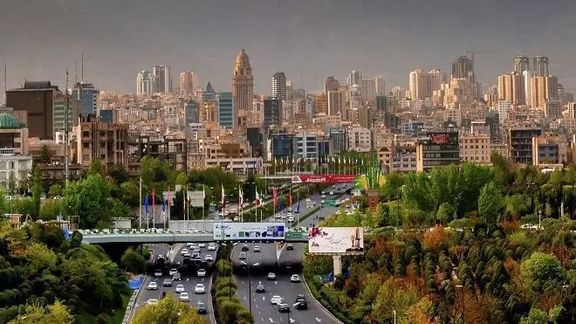
Amidst fears of a devastating earthquake in Tehran, a City Council member issued a stern warning about its potential impact.

Amidst fears of a devastating earthquake in Tehran, a City Council member issued a stern warning about its potential impact.
Mohammad Aghamiri emphasized that if an earthquake were to strike the capital, which is located in an area of high seismic activity with these the risks compounded by increasing land subsidence, the city’s current infrastructure would not withstand and a national crisis would ensue.
Aghamiri spoke to Etemad newspaper, expressing his deep apprehensions about the current subsidence situation in Tehran, terming it unacceptable and extremely worrying. Recognizing the gravity of the issue, he stressed the crucial need for national support to effectively address and contain the looming threat.
"If an earthquake occurs in Tehran, the capital, which should itself be the command center, will experience a crisis," he said.
His concerns align with the sentiments expressed earlier this year by Mehdi Pirhadi, another member of Tehran City Council, who also underscored the urgency of renovating buildings in the capital to withstand potential earthquakes. Pirhadi emphasized that a quake with a magnitude of over 7 could lead to hundreds of thousands of casualties and deaths, due to 166,000 hectares of worn-out structures across the country.
In light of this grim outlook, experts have predicted that in the event of a magnitude 7 earthquake, at least one and a half million people could lose their lives in Tehran alone.
Iran, situated at the convergence of the Arabian, Indian, and Eurasian tectonic plates, is known for its high seismic activity, making it one of the most earthquake-prone countries in the world. The nation has experienced several massive earthquakes in recent history, resulting in tens of thousands of casualties and substantial economic losses.
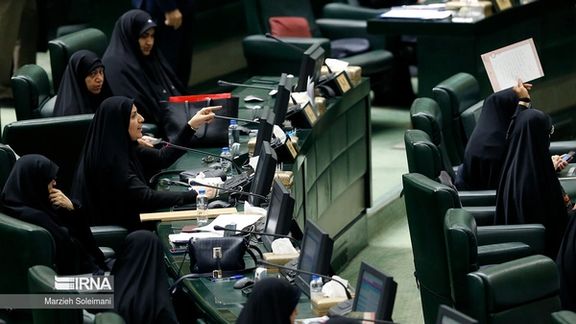
Legal experts say Iran’s new hijab bill violates not only civil rights but also the Constitution and requires vast resources beyond the government’s means.
Speaking to Tejarat News, a website in Tehran, lawyer Sara Bagheri said the proposed legislation is against individuals’ rights including their right to security and will hurt individuals’ reputation and dignity on account of their chosen style of clothing.
Referring to article 51 of the proposed law which prescribes heavy cash fines for unveiling in public, Bagheri said what is considered as crime, and the corresponding punishment in this article and others, are very disproportionate. “Also, the bill does not make it clear what will happen if the person [found guilty] refuses to pay the fine,” she added.
Shima Ghousheh, a law expert, wrote in a commentary published by the reformist Etemad newspaper on Saturday, "The country’s whole budget should be used to build prisons for women because many Iranians will not be able to pay these [heavy] fines and should be sent to prison." She pointed out that the punishments for unveiling or "improper" hijab are much heavier than those prescribed by law for financial crimes, including embezzlement and drug-related offenses.
The hijab bill bans taking photos or videos of police while enforcing hijab but two of its articles, 36 and 37, allow law enforcement officers as well as civilians, provided that they have been trained and certified by the police, to take photos of the person violating the hijab law and post it to a special police portal. They will also be authorized to report businesses that have failed to comply with the provisions of the new hijab law.

These two articles open the door to libel based on personal grudges against individuals, even when they have been compliant with the rules, and courts will have to deal not only with hijab infringement cases but also a vast number of legal cases resulting from personal grudges, experts say.
Since March, hardliners have attempted to end women's increasing defiance of compulsory hijab and reclaim lost ground through various instructions to government bodies, but their efforts seem to have hugely backfired as the number of women who refuse to abide by the current rules has noticeably increased.
In a commentary published by Etemad, well-known Iranian lawyer Kambiz Nowrouzi strongly criticized a recent directive by Gilan Medical Sciences University, an affiliate of the health ministry, that bans hospitals under its coverage from offering services to unveiled women and called it "an astounding and horrendous example of violation of the [existing] laws and ethics."
Law expert Omid Salimi-Bani told the conservative Khabar Online news website Saturday that the bill, if approved, will add thirty new types of crimes to the list of crimes in the Islamic Republic’s existing laws.
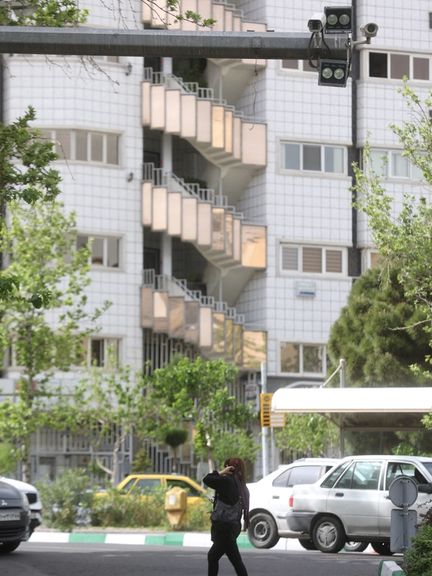
Some of the other “crimes” enumerated in the bill include “promoting unveiling” which may be considered as corruption on earth that bears a death penalty , “insulting the principle of hijab” which will be punishable by a cash fine of 1 billion rials ($2,000) for the first infringement, as well as designing, advertising or importing banned clothing, and refusal of businesses to submit their CCTV recordings to authorities for identification of unveiled women.
“Are these behaviors so abominable from the point of view of societal norms and people that they require punishment? It doesn’t seem that the majority of people think the same as those who have written the bill,” he said.
“State and government culture-building has proven to be a failure and the Iranian example is one of the best,” reformist Ham-Mihan newspaper wrote Sunday and suggested holding a referendum to find out what most Iranians think about the issue of hijab.
The regime and its Supreme Leader Ali Khamenei have always refused suggestions of referendum which Article 59 of the Constitution of the Islamic Republic, which was approved by a referendum after the Islamic Revolution of 1979, proposes in “extremely important economic, political, social, and cultural matters.”
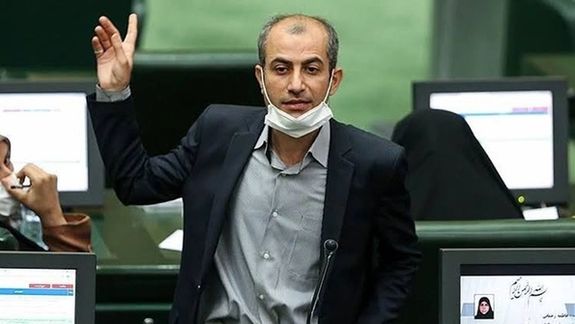
In stern cautionary statements, two Iranian members of parliament have raised concerns about the precarious state of Iran's economy.
Mojtaba Tavangar, representing Tehran in the parliament, stressed on Sunday that without a comprehensive and robust plan to address the nation's economic challenges, attempts to alleviate poverty through wealth distribution or subsidies would prove futile in the face of potential currency shocks.
"If we do not have a plan and simply want to reduce poverty by distributing wealth or distributing subsidies, then, with another foreign currency shock, all the work that we have done to reduce poverty will be undone," warned Tavangar.
As a member of the economic commission of parliament, Tavangar went on to criticize the government's apparent weaknesses in managing the economy. He pointed to alarming indicators such as continued inflation, the soaring cost of food, skyrocketing house rents, and the overall high cost of living as the key pressing issues plaguing the nation.
In agreement with Tavangar, Mohammad Vahidi, the representative of Bojnord in the parliament, also warned about the potential consequences of the current economic trajectory. Vahidi sternly cautioned that the country could be led to the brink of economic collapse if the current governance approach is not re-evaluated.
Official reports have lent weight to the parliamentarians' warnings, reflecting the severity of the economic situation in Iran. The Parliament Research Center recently published a report stating that 75% of the three lowest income deciles lack any support, confirming an increase in the number of poor individuals in the country.
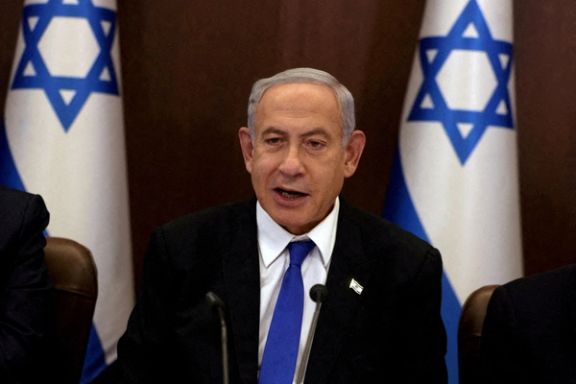
Israel's army would rally and unify in the face of any threats by the Lebanese Iran-backed Hezbollah, Israeli Prime Minister Benjamin Netanyahu said on Sunday.
Netanyahu made the remarks during a cabinet meeting, amid growing tensions along Israel's northern border with Lebanon and as the country's military faces threats to its cohesion over the government's attempts to weaken the judiciary.
Since Israel’s current political crisis began earlier this year, Iran and its militant proxies in the region have rallied to take advantage of any weaknesses. Large-scale military clashes took place between the Palestinian Islamic Jihad, a Hezbollah ally, and Israel in early April.
“As for (Hezbollah leader Hassan) Nasrallah's bunker threats, we are not impressed by them. On the day we are tested, he will find us standing together, shoulder to shoulder, and even Nasrallah knows that neither he nor Lebanon should put us to the that test.”
Reuters reported last week that Iranian military and security officials recently held a meeting with Hezbollah and Palestinian Hamas to see how they can take advantage of Israel’s internal problems. The Revolutionary Guard’s (IRGC) Quds Force attended the three-hour meeting, as Israel’s foes see an opportunity in Israel’s political turmoil related to Netanyahu’s judicial reforms.
Iranian government media and officials have been highlighting large protests in Israel against the judicial reforms by heralding the imminent collapse of “the Zionist entity.” They have also been openly encouraging Palestinian and other militants to intensify their attacks inside Israel.
With reporting by AP, Reuters
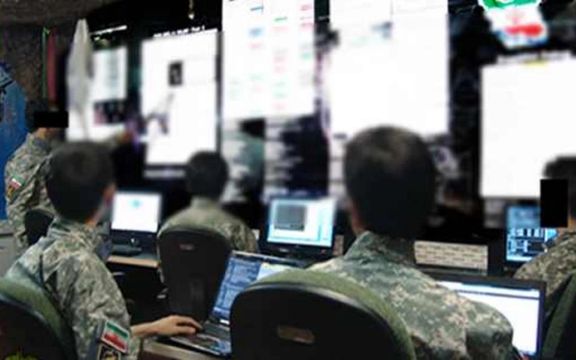
Israel’s Shin Bet internal intelligence agency says it has thwarted a phishing campaign by Iran targeting primarily Israeli civil servants and researchers.
On Sunday, the agency disclosed some information about the LinkedIn-based campaign to infect the victims’ computers with malicious software and gather information.
The Iranians created false profiles posing as real Israeli citizens with whom the targets may have had personal or professional interactions. Then, they initiated conversations on LinkedIn and continued correspondence through email, according to the agency.
During their correspondence, the impostors would send an invitation to a conference or other digital files of interest, such as a study or article. Clicking on these links would then infect the recipient's computer with a malicious file that would grant the Iranian entity comprehensive access to the compromised system, enabling remote takeover and complete exposure of the information contained within.
Israeli-based news channel i24NEWS cited Shin Bet as noting that he hackers originally compiled the necessary information for the LinkedIn profiles from social media networks, allowing them to establish a connection and then engage in correspondence tailored to the target's specific interests.
The campaign is just the latest in a series of similar operations by the regime’s cyber agents against Tehran’s archnemesis Israel. Iran-sponsored cyberspies have recently boosted their techniques, using fake personas of real people to add credibility to the phishing emails designed to deliver malware.
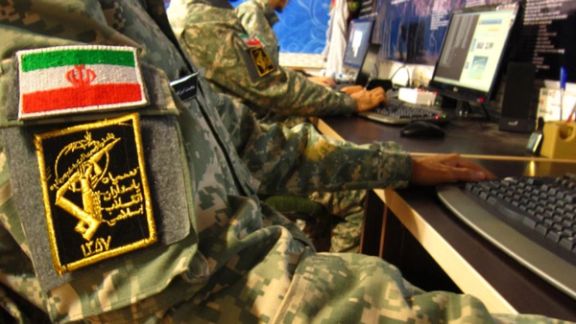
Mehdi Saremifar, a Canada-based sci-tech journalist, told Iran International on Sunday that the cyber-attacks by the Iranian regime’s hackers during the past several years indicate that several organizations or institutions in Iran are coordinating their efforts for such campaigns. He says the country’s intelligence ministry and the cyber army of the Revolutionary Guards are among the units involved in the regime’s warfare in cyberspace.
According to Saremifar, Iran’s attacks are mainly aimed at phishing and getting ransom as well as some for military intel, a case of which led to a drone attack against an oil tanker associated with an Israeli billionaire off the coast of Oman in November 2022.
According to a 2022 report by Security firm Proofpoint, Iran-aligned agents deployed a social engineering impersonation technique, informally called Multi-Persona Impersonation, in mid-2022 in which the threat actor uses at least two stolen or hijacked personas on a single email thread to convince targets of the legitimacy of the campaign. The personas used are real people that the target knows and trusts.
Last August, Meta, formerly the Facebook company, removed at least two Iranian cyberespionage groups that were targeting academics, activists, journalists and other victims. Also in 2022, Iranian hackers -- named Sharp Boys -- targeted several travel booking sites of an Israeli company and stolen personal information of more than 300,000 Israelis.
Earlier in the year, researchers at CheckPoint's Incident Response Team said an Iran-linked group calling itself Moneybird has deployed a ransomware against Israeli organizations.
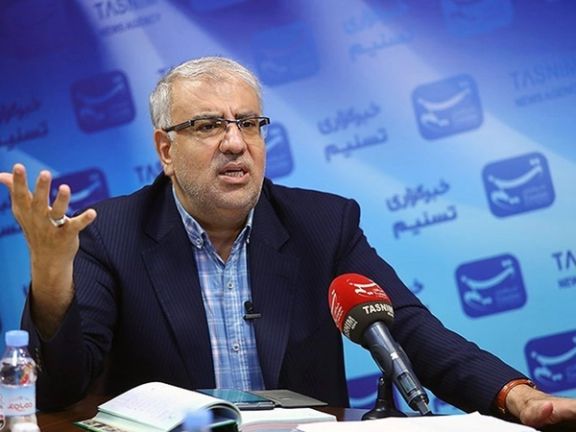
Iran’s oil minister says Tehran will pursue its rights over a disputed maritime field in the western tip of the Persian Gulf shared with Kuwait and Saudi Arabia if they shun cooperation.
“If there is no willingness to cooperate, Iran will pursue its rights and benefits, including the exploitation and exploration of the Arash gas field, and will not tolerate any violation of its rights,” Javad Owji said on Sunday, according to the Oil Ministry’s SHANA news agency.
Called Arash in Iran and Durra or Dorra by Saudi Arabia and Kuwait -- the offshore field was discovered in 1967 and is estimated to have a total proven reserves of around 310 million barrels of oil and 20 trillion cubic feet of gas.
Kuwait and Saudi Arabia insist that Iran has no right over the field, claiming “exclusive” right, while Iran says any development without its consent is “illegal” according to international laws as it claims 40 percent of the field located in its territorial waters.
Kuwait's oil minister Saad Al Barrak told SkyNews Arabia July 27 that his country will start drilling and begin production at the gas field without waiting for border demarcation with Iran, reiterating the two Arab countries’ position that Iran must validate its claim to the field by demarcating its own maritime borders first.
As controversies surrounding the case are escalating, the disputed maritime field in the Persian Gulf has become a litmus test for the recent détente between Tehran and Riyadh.